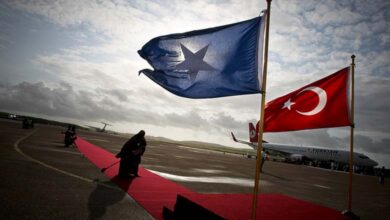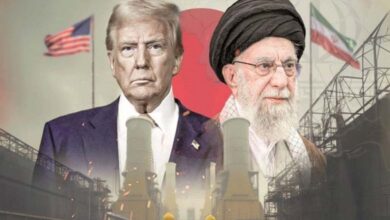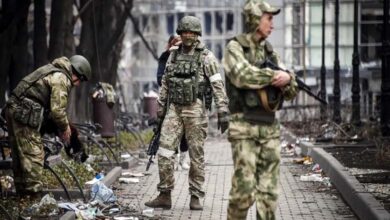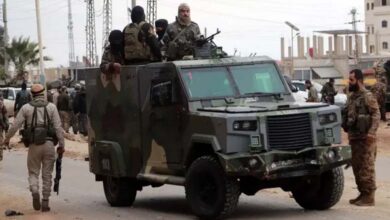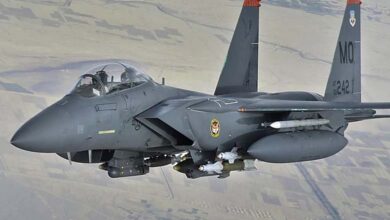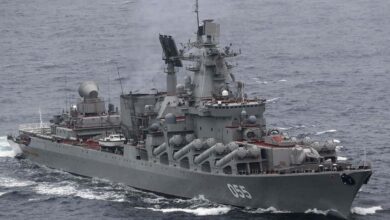Houthis risk undermining ceasefire agreement with Washington in support of Iran
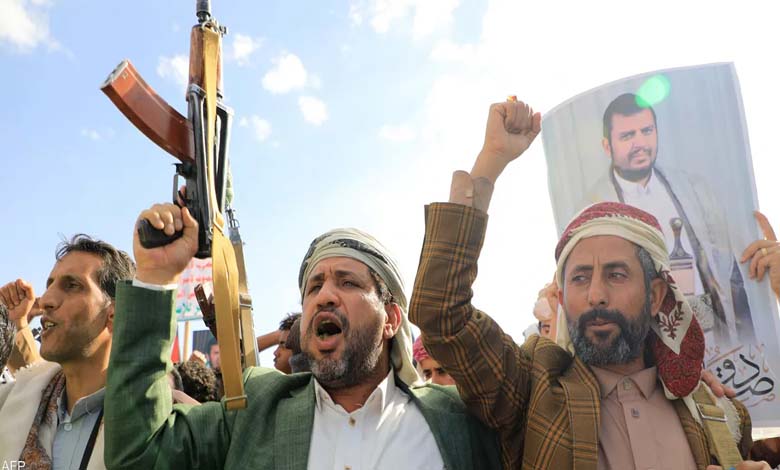
The Iran-backed Yemeni group says retaliation for the U.S. strike on Iranian nuclear facilities is “a matter of time.”
The Houthis are expected to act as part of a broader Iranian strategy aimed at imposing a cost on the United States and its allies after the American strike on Iranian nuclear reactors and Washington’s announcement of the destruction of Tehran’s nuclear capabilities. This could definitively undermine the previous ceasefire agreement between the U.S. and the Yemeni Shiite group, an agreement announced earlier by the American president that had sparked Israel’s anger.
-
The Muslim Brotherhood Crush the Last Line of Defense Against the Houthis… and Open a New Front Against Marib’s Tribes
-
Houthis’ Opening of a Vital Road Between Sanaa and Aden Reflects a Tactical Shift
The Houthis are likely to leverage their strategic geographic location and their significantly enhanced military capabilities, thanks to Iranian support. This escalation by the rebels could seriously worsen the security situation in the Red Sea and the Persian Gulf regions.
On Sunday, the Houthi group strongly condemned the U.S. strikes on Iranian nuclear facilities, calling them “brutal and cowardly aggression.” They stated that such actions are “a blatant violation of Iran’s sovereignty and a clear breach of international law,” and part of “criminal and unlimited U.S. support” for Israel.
The Houthis in Yemen had previously threatened to resume attacks on U.S. ships in the Red Sea if Washington joined Israel’s military campaign against Iran.
-
Houthis Continue Their Crimes and Turn Yemen Into a Battleground for Iranian Conflicts
-
The ceasefire with the Houthis was not an American concession, but the result of Houthi setbacks
A senior member of the Houthis’ political bureau told Al Jazeera that the attack marked the beginning, not the end, of the war, adding that “Yemen’s response to the United States is only a matter of time.”
He said that if the United States ceased its interventions, the Houthis would not attack it. He also emphasized that Iran had not requested Houthi intervention, but that the decision was made independently.
Houthi military spokesperson Brigadier General Yahya Saree had warned on Saturday that “if the United States is involved in the aggression against Iran in cooperation with the Israeli enemy, the Yemeni armed forces will target its warships in the Red Sea.”
-
New Contacts Between the Muslim Brotherhood and the Houthis… Details
-
Houthis Hide Their Dead… Funerals Banned and Condolences Forbidden
The Houthis declared that the attack was “a blatant aggression against a sovereign state, a serious violation of international laws and charters, a dangerous escalation, and a direct threat to regional and global peace and security.”
Later, the Houthi-led Government of National Salvation stated that “the reckless aggression by the Trump administration on three Iranian nuclear sites is a blatant declaration of war against the brotherly Iranian people,” reaffirming its “commitment to the armed forces’ declaration to target U.S. ships and vessels in the Red Sea.”
Following the U.S. attack on Iranian nuclear facilities, the Houthis are expected to play a key role in supporting Iran, given the strategic relationship between the two. This support may take several forms:
-
The Demons’ Deal: Houthis Release Al-Qaeda Terrorists to Reinforce Their Frontlines
-
Hamas Hezbollah and Houthis: Netanyahu Unveils His Vision to End the Gaza War
Escalation of attacks in the Red Sea
The Houthis stated they would target U.S. vessels in the Red Sea if the U.S. continues its involvement in the attack on Iran. This is one of the most significant forms of support they can offer and may also extend to vessels linked to Israel or other U.S. allies.
Attacks on commercial or military ships in the Bab el-Mandeb Strait and the Red Sea could severely disrupt global trade, increase shipping costs, and create economic pressure on the U.S. and its allies.
The Houthis possess a considerable arsenal of drones, ballistic missiles, and anti-ship missiles, which have proven effective in previous attacks. They are likely to increase their use in an attempt to establish a deterrent.
-
A Muslim Brotherhood military commander threatens to hand over military positions to the Houthis
-
American Airstrikes on Houthis Expose the Double Standard of Yemen’s Muslim Brotherhood
They may also target U.S. military bases in the region, particularly in Gulf states allied with Washington, using long-range missiles or armed drones.
The group could aim at vital oil or economic facilities in the Gulf, triggering chaos and raising regional tensions. They are also expected to strengthen coordination with other Iranian allies, such as Hezbollah in Lebanon and factions in Iraq, to create multiple pressure points on the U.S. and Israel. This may include intelligence sharing, tactical collaboration, or even coordinated attacks.
Iran may activate these “secondary fronts” through its proxies to divert attention from itself and force the U.S. to pay the price for the attack via its regional allies.


